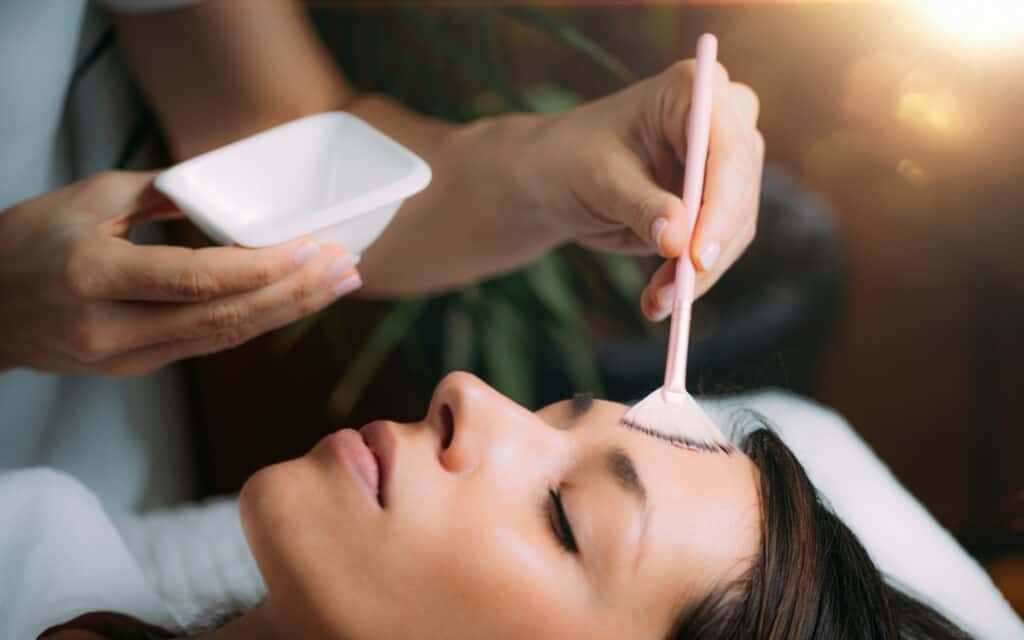Introduction
In the world of skincare, tretinoin and retinol are two powerful ingredients often mentioned in the fight against aging, acne, and other skin concerns. However, the terms are sometimes used interchangeably, leading to confusion about their differences and benefits. In this article, we will dive into the tretinoin vs retinol debate, comparing their strength, prescription requirements, over-the-counter availability, benefits, risks, and safety to help you make an informed decision about which one is right for your skincare routine.
Tretinoin vs Retinol: What Are They?
Both tretinoin and retinol are derivatives of vitamin A, which is crucial for maintaining healthy skin. However, they differ in their chemical structure and potency.
Tretinoin, also known as all-trans retinoic acid or Retin-A, is a prescription-strength retinoid that is FDA-approved for treating acne, reducing fine lines and wrinkles, and improving skin texture.
Retinol, on the other hand, is a milder, over-the-counter (OTC) retinoid that is converted to retinoic acid once it penetrates the skin. It is commonly found in various skincare products like serums, creams, and lotions.
Strength and Prescription
One of the main differences in the tretinoin vs retinol debate is their strength. Tretinoin is a much stronger and more potent ingredient compared to retinol, as it is already in its active form when applied to the skin. Because of its strength, tretinoin requires a prescription from a dermatologist or healthcare provider.
Retinol, being a weaker alternative, is available over-the-counter in various skincare products. Its lower strength makes it a popular choice for those with sensitive skin or those looking for a gentler introduction to retinoids.
Benefits
Both tretinoin and retinol provide a range of benefits for the skin. They both work by increasing cell turnover, boosting collagen production, and reducing the appearance of fine lines and wrinkles. Additionally, they can improve skin tone, texture, and help with acne management.
However, due to its stronger nature, tretinoin often delivers faster and more noticeable results than retinol. It is especially effective in treating moderate to severe acne and more pronounced signs of aging.
Risks and Safety
As with any skincare ingredient, there are potential risks and side effects associated with both tretinoin and retinol.
Tretinoin, being more potent, can cause irritation, redness, peeling, and increased sensitivity to sunlight. These side effects are usually more pronounced at the beginning of treatment and tend to subside as the skin becomes accustomed to the product. It is essential to use sunscreen daily and follow your dermatologist’s instructions when using tretinoin.
Retinol, while generally considered safer and better tolerated due to its lower strength, can still cause mild irritation, redness, and peeling, especially for those with sensitive skin or when used in high concentrations. It’s crucial to start with a low concentration and gradually increase as your skin adapts to the product. Using sunscreen is also necessary when incorporating retinol into your skincare routine.
Conclusion
When it comes to tretinoin vs retinol, the main differences lie in their strength, prescription requirements, and potential side effects. Tretinoin is a powerful, prescription-strength retinoid that delivers faster and more noticeable results, while retinol is a gentler, over-the-counter option suitable for those with sensitive skin or seeking a milder introduction to retinoids.
Incorporating either tretinoin or retinol into your skincare routine can provide significant benefits, depending on your skin type and concerns. If you have moderate to severe acne or more pronounced signs of aging, tretinoin may be a more suitable option. However, if you prefer a gentler approach or have sensitive skin, retinol could be the better choice.
Before deciding on tretinoin vs retinol, it’s essential to consult with a dermatologist or healthcare provider to determine the best option for your skin needs. Always follow their recommendations and instructions for use, and remember to be patient, as results may take several weeks to become apparent. Lastly, don’t forget the importance of using sunscreen daily to protect your skin from potential sun damage when using either of these potent ingredients.
